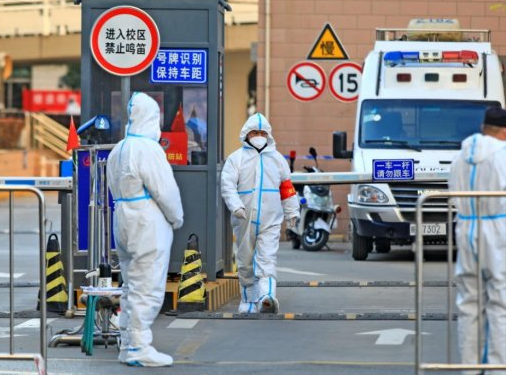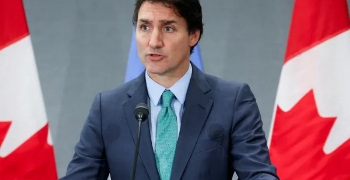Beijing: China’s pharmaceutical sector is scrambling to boost supplies as demand surges for fever, cold and Covid drugs amid fear among the public that the sudden lifting of the strict coronavirus restrictions could shoot up infections.
China on Thursday began implementing a more relaxed version of its strict “zero COVID” policy. The government released a guideline on home treatment for asymptomatic or mild COVID-19 cases according to which patients who are asymptomatic or exhibit mild symptoms without serious underlying diseases, can be treated at home.
Patients who have stable underlying medical conditions and who do not need hospitalisation, may also recover from COVID-19 at home, the state-run Xinhua news agency quoted an official statement as saying.
Where conditions permit, the home-based patients should live in relatively separate rooms and use their own restrooms, the guideline noted.
After widespread protests, China on Wednesday rolled back major COVID-19 restrictions, moving a step closer to scrapping its dreaded zero-Covid policy, which drastically slowed down the economy and the movement of people across the country.
In light of the changing situation and the weakened virulence of the Omicron variant, the government released new measures to further optimise the response to COVID-19, which are welcomed by people, who are fed up with recurring lockdowns in the last three years.
The new measures limit the lockdown to individual apartment floors and buildings, rather than entire districts and neighbourhoods.
The new measures also sparked concerns that the covid infections will spiral all over the country, the fear which put most people indoors. Meanwhile, skyrocketing demand has stretched supplies and pushed up prices of essential drugs.
Local governments and drug suppliers are working to stabilise inventory and urging consumers not to hoard medications, state-run Global Times reported on Thursday.
Pharmacies in Beijing, Guangzhou, and other cities told official media that Lianhua Qingwen capsules, a traditional Chinese medicine that is reportedly able to treat COVID-19 symptoms, are sold out.
Also Read – BJD rides on Patnaik charisma, steamrolls to victory in Padampur bypoll
“The drug is so popular these days that it is sold out once it’s put on the shelf,” an employee of one local pharmacy in Beijing said. Previously such cannot be bought across the counter without undergoing tests.
The Beijing Food and Drug Administration told the media that Beijing has released about 400,000 boxes of Lianhua Qingwen on the market each day since Monday, which can guarantee supply. The agency asked people not to stockpile large quantities of medicines.
Putting the sudden easing of the “zero Covid” policy in perspective, a Chinese health official said that Wednesday’s relaxation is neither a signal for eased control nor a passive response.
Liang Wannian, head of the COVID-19 response expert council at China’s National Health Commission (NHC), said in an interview with the official media that China’s approach is active optimisation.
He conceded that there is a gap in China’s health resources compared with those in developed countries, such as the number of doctors, nurses and hospital beds and intensive care unit (ICU) beds per thousand people, state-run CGTN reported.
China’s hospitals provide an average of 6.7 beds per 1,000 people as of 2021, up from 6.46 a year earlier, according to the statistics of the country’s healthcare development statement published in July 2022. In 2020, that figure stood at 12.65 for South Korea, 12.63 for Japan, and 7.82 for Germany.
In terms of ICU beds, China can only provide 4.5 beds for every 100,000 people, whereas the global average is 10, according to the World Health Organisation, the report said.
Although these changes came after Western countries adopted “co-existence” with the virus, Liang said China’s decision is based on the country’s practical and more complex situation, such as its huge population base, particularly the elderly and those suffering from specific medical conditions or chronic illnesses.
PTI






































